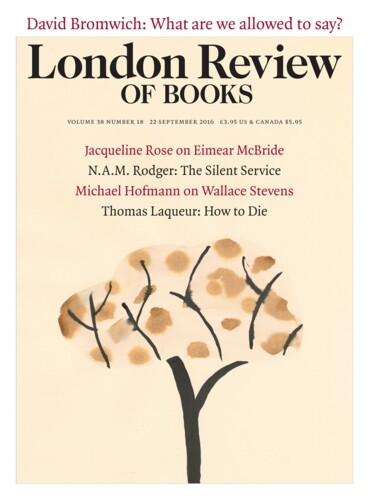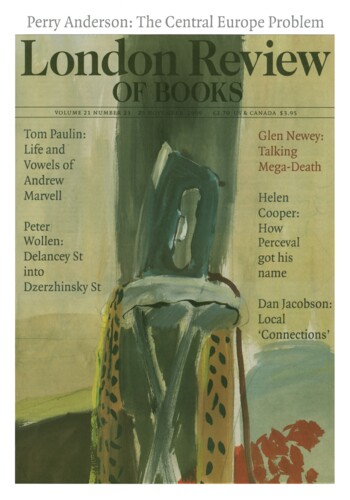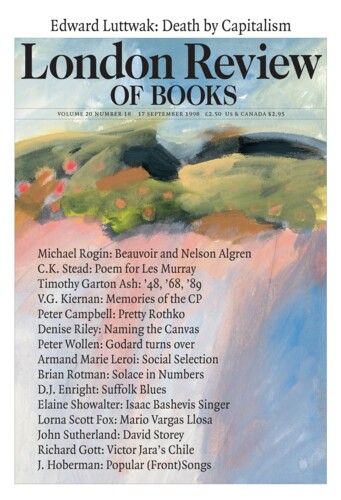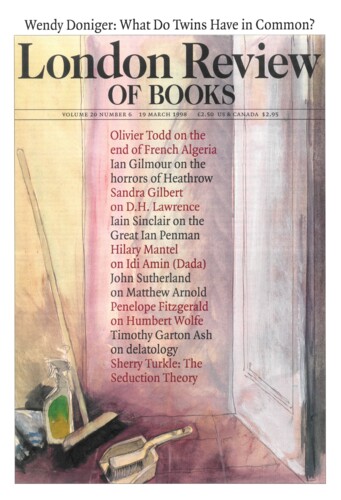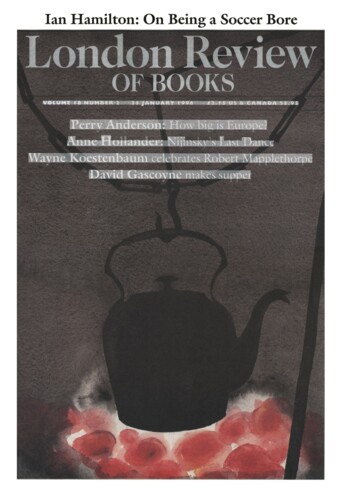Timothy Garton Ash
Timothy Garton Ash, a fellow of St Antony’s College, Oxford, was awarded the OSCE Prize for Journalism and Democracy in 1998. The File: A Personal History is available in paperback from Flamingo.
A Ripple of the Polonaise
25 November 1999
Can Europeans really find no way of living together in democracies other than living apart? ‘48, ‘68, ‘89
Timothy Garton Ash, 17 September 1998
Back in the now remote summer of 1990, when we were still celebrating the birth of a ‘new Europe’, a book was published simultaneously in several European languages. Written by Jean-Baptiste Duroselle and entitled, in the English edition, Europe: A History of Its Peoples, it is a classic example of the Whig interpretation of European history, a historical supplement to Jacques Delors. Already on page 21, Duroselle finds it ‘possible to discern in Europe’s history a general if halting growth in compassion, humanity and equality’. Discussing several different ways of viewing the post-1945 history of Europe, he writes: ‘one may, finally, see this phase of history in a European light’ – by implication, all other lights are somehow un-European – ‘and observe how many objective factors have combined with creative acts of will to make possible the first step towards a united Europe.’’‘
Comparative Horrors: delatology
Timothy Garton Ash, 19 March 1998
I recently received a letter from a German theatre director, objecting to a passage of my book The File in which I wrote that, back in the Stalinist Fifties, an East German friend of mine had been ‘denounced’ by one Dr Warmbier, then a lecturer in Marxism-Leninism at Leipzig University. ‘It’s the word “denounced” that is wholly inappropriate,’ the director wrote, in defence of his old friend Dr Warmbier. He gave three reasons for thinking it inappropriate. Dr Warmbier had not, he argued, decisively contributed to my friend’s dismissal from the university; the letter in which Dr Warmbier criticised my friend had not been addressed to an official body; and Dr Warmbier had no selfish motives in lodging those criticisms. He was a Communist and was merely acting on his beliefs.‘
Amphibologies
25 January 1996
Pieces about Timothy Garton Ash in the LRB
Knee-Deep: Leftist Platitudes
Slavoj Žižek, 2 September 2004
The fate of a Slovene Communist revolutionary serves as a perfect metaphor for the twists of Stalinism. In 1943, when Italy capitulated, he led a rebellion of Yugoslav prisoners in a...
A Ripple of the Polonaise: work of the Nineties
Perry Anderson, 25 November 1999
Western curiosity about other lands has a long history as a literary phenomenon – its fashionable origins are generally dated to the Grand Siècle, the time of the voyages to Mughal...
How was it for you?
David Blackbourn, 30 October 1997
John Le Carré called it ‘the Abteilung’, but the real name of the East German foreign intelligence department was the Hauptverwaltung Aufklärung, or Main Intelligence...
Getting it wrong
Misha Glenny, 24 February 1994
Last November, I returned to Berlin for the first time since the Wall came down. I had first lived there for six months in 1979. Within days of my arrival I’d been lucky to be accepted into...
Who would have thought it?
Neal Ascherson, 8 March 1990
This book went to press in the previous decade, in a different geological period of European history, in the almost forgotten circumstances of the late spring of 1989. When it was first sent to...
Read anywhere with the London Review of Books app, available now from the App Store for Apple devices, Google Play for Android devices and Amazon for your Kindle Fire.
Sign up to our newsletter
For highlights from the latest issue, our archive and the blog, as well as news, events and exclusive promotions.
